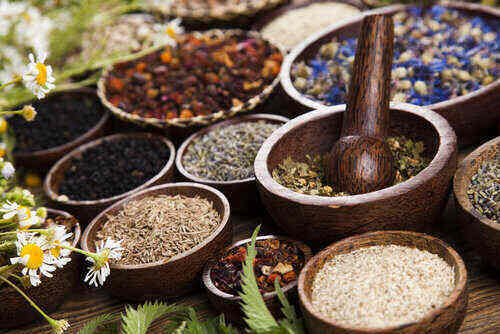
The Role of Herbal Medicine in Traditional Systems of Health
Posted by Kelsey Guerrero on 2023-02-24
Herbal medicine is an important part of traditional systems of health, such as Ayurveda and TCM. It is used for treating various medical conditions, and it has an important role to play in modern health systems. However, it is important to understand the origins of herbal medicine, as well as the principles, practices, and research that have led to the discovery of the various medicines that are available in modern-day medicine.
Understanding the origins
The practice of herbal medicine in traditional systems such as Ayurveda and TCM has a long history. Its popularity is increasing worldwide. There are many reasons for this. One reason is that a growing number of Western societies are becoming more interested in it. Another is that more and more clinical research is showing that it can improve patient care.
Traditional Chinese Medicine (TCM) is an innovation that was introduced in the aftermath of the Communist revolution of 1949. In this era, the government played a strong role in developing and standardizing it. This was a nationalistic project.
TCM, which derived from both Ayurveda and Kampo, is a system-oriented interpretation of medical science. It aims at bringing balance between the external and internal environments. Some of its treatments include meditation and breathing exercises.
The earliest written work on the subject, the Inner Canon of the Yellow Emperor, was compiled in the early Han period. However, TCM did not evolve very much over the years.
Principles
Traditional systems of medicine, such as Ayurveda and TCM, use natural products as their primary sources of medicine. They have been in practice for thousands of years and will continue to flourish in the future. However, these systems of medicine are still in need of a thorough understanding of their principles. The lack of this understanding is a major hurdle for the convergence of modern and traditional medicine.
In Ayurveda, the human body is believed to have three basic humors: Vata, Pitta, and Kapha. These humors affect the structure and function of the human body. The proportion of these elements determines the characteristic nature of the human body.
In TCM, the human body is believed to be a delicate balance of the forces of yin and yang. Disease is believed to be caused by an imbalance in the internal balance of these two opposing forces. This imbalance leads to a blockage of qi or vital energy.
Modern research on efficacy
Modern research on the efficacy of herbal medicines in traditional systems such as Ayurveda and TCM is gaining momentum. The popularity of these forms of medicine is growing worldwide. Despite their flaws, these systems are still a valuable resource for human knowledge.
Many cultures have developed their own whole medical systems. These systems have been developed independently of allopathic medicine. They focus on the holistic approach to health. This includes investigating the interrelatedness of physical, mental, and emotional states.
Traditional medicine is an important branch of science. It has been used for thousands of years. Currently, it is being taught more in medical schools. Those who are trained in this field use it in conjunction with conventional therapies. However, it is not widely accepted by the mainstream.
The primary goal of traditional medicine is to restore harmony in the body. Practitioners of this system typically use massage and herbs. In addition, they also use diet, exercise, and acupuncture.
Contribution to national health systems
Traditional and herbal medicine (T&CM) is a practice that contributes to the health of millions of people. It is a broad and diverse field of healthcare practices that has roots in the ancient world, including acupuncture, yoga, indigenous therapies, and herbal medicines. In many countries, these traditional practices are used in tandem with modern medical services. However, there are still major questions about their safety, efficacy, and cost-effectiveness.
The integration of T&CM into modern medical practices is a complex process that can involve both scientific and cultural factors. For instance, there are legal, economical, and educational issues.
There are also a range of interrelated safety and efficacy issues that could contribute to rational integration of herbal medicine into modern medical practices. A lack of effective quality assurance policies may affect the quality of manufactured herbal products. This has led to studies documenting the adulteration of herbal medicines.
Herbal medicine is being taught more frequently in medical schools and pharmacy schools. Advances in clinical research are also increasing the value of the practice. These factors have contributed to the increased use of herbal medicines worldwide.